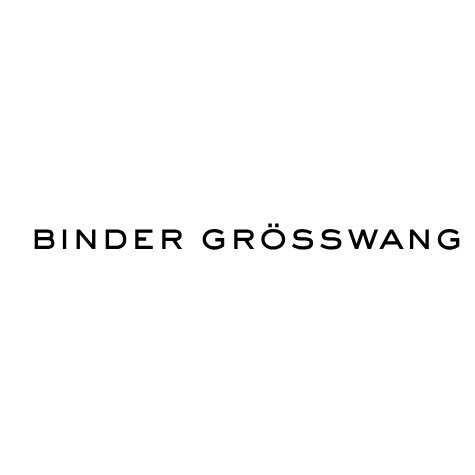Best Structured Finance Lawyers in Innsbruck
Share your needs with us, get contacted by law firms.
Free. Takes 2 min.
List of the best lawyers in Innsbruck, Austria
About Structured Finance Law in Innsbruck, Austria
Structured finance is a specialized field within banking and finance that involves the creation of complex financial instruments tailored to meet specific funding needs. In Innsbruck, Austria, structured finance transactions typically include securitizations, syndicated lending, project finance, asset-backed securities, and other sophisticated financial arrangements. Legal practice in this area combines elements of contract law, banking regulation, insolvency law, and securities law, requiring thorough understanding and meticulous documentation. Innsbruck's proximity to major financial centers and its robust local economy make it an attractive location for businesses seeking to engage in structured finance solutions.
Why You May Need a Lawyer
Engaging in structured finance transactions often involves substantial legal risk and regulatory complexity. Here are some common situations where you may need legal assistance:
- Drafting or negotiating structured finance agreements, such as loan facilities, bonds, or securitization documents.
- Ensuring compliance with local and European Union financial regulations.
- Structuring transactions to mitigate risks related to insolvency or tax exposure.
- Advising on cross-border financing or the inclusion of foreign entities.
- Representing your interests before regulatory agencies, such as the Austrian Financial Market Authority.
- Resolving disputes arising from complex financing transactions.
- Advising on the implications of Basel III/IV standards for lending and capital management.
- Handling due diligence processes during mergers, acquisitions, or project finance deals involving multiple stakeholders.
Local Laws Overview
Structured finance in Innsbruck, Austria, is influenced by a mix of Austrian national law, European Union directives, and international best practices. Key areas of law applicable include:
- Banking and Capital Markets Law: The Austrian Banking Act and Capital Market Act set out licensing, disclosure, and operational requirements for financial transactions and institutions.
- Insolvency Law: The Austrian Insolvency Code provides guidance on creditor priorities, the treatment of collateral, and the legal consequences of borrower defaults.
- Securities Law: The issuance and transfer of securities are regulated by the Austrian Securities Supervision Act, among other statutes.
- Anti-Money Laundering Regulations: Strict identification, reporting, and record-keeping requirements are in place, aligned with EU directives.
- Contract Law: Austrian Civil Code principles govern contract formation, validity, and enforcement in structured products.
- Tax Law: Austria's tax regulations, including rules on withholding tax, VAT implications, and double taxation treaties, significantly impact transaction structures.
- Cross-Border Transactions: EU frameworks, such as the Capital Requirements Directive, impact structured finance deals involving multiple jurisdictions.
Frequently Asked Questions
What is structured finance and how does it differ from traditional lending?
Structured finance refers to complex financing solutions that go beyond traditional bank loans, often involving pooled assets, special purpose vehicles, and tailored legal structures to mitigate risk and enhance flexibility.
Are there specific regulations in Innsbruck or Austria that govern structured finance?
Yes, several Austrian laws such as the Banking Act, Securities Supervision Act, and Civil Code regulate these transactions. EU directives on banking, capital markets, and anti-money laundering also apply.
Do I need regulatory approval to participate in structured finance transactions in Innsbruck?
Depending on the nature of the transaction and whether you are an individual, entity, or financial institution, regulatory approvals or notifications may be required from the Austrian Financial Market Authority.
Can foreign investors participate in structured finance deals in Austria?
Yes, Austria is open to foreign investment, though compliance with local and EU regulations, including reporting and tax obligations, is essential.
How are assets typically securitized in Austria?
Asset securitization usually involves transferring assets to a special purpose vehicle, which issues securities backed by those assets. The legal structure must align with Austrian and EU rules regarding bankruptcy remoteness and investor protection.
What legal risks are involved in structured finance?
Risks include regulatory breaches, enforceability of collateral, insolvency issues, changes in tax law, as well as counterparty and documentation risks.
What is the typical process for closing a structured finance deal in Innsbruck?
The process generally includes due diligence, structuring the transaction, drafting and negotiating documentation, obtaining regulatory clearances, and finalizing all contractual obligations before disbursement.
Which types of entities most commonly use structured finance solutions?
Corporations, public institutions, real estate companies, financial institutions, and project developers are frequent users of structured finance to optimize their funding strategies.
How does taxation affect structured finance transactions in Austria?
Tax implications vary depending on the transaction structure, asset type, and residence of parties. Professional legal and tax advice is essential to ensure compliance and optimize taxation.
How can a lawyer help in resolving disputes arising from structured finance deals?
A knowledgeable lawyer can provide dispute resolution services, represent clients in mediation or arbitration, and advise on litigation risks as well as enforceability of structured finance agreements.
Additional Resources
- Austrian Financial Market Authority (FMA): Regulator overseeing banking, securities, and insurance sectors.
- Chamber of Public Accountants and Tax Advisers (Kammer der Steuerberater und Wirtschaftsprüfer): Provides resources on tax and accounting aspects of finance transactions.
- Federal Ministry of Finance (BMF): Issues guidelines on financial regulation, anti-money laundering, and cross-border capital flows.
- Austrian Bar Association (Österreichische Rechtsanwaltskammer): Directory of qualified lawyers in structured finance and related fields.
- Vienna Stock Exchange (Wiener Börse): Offers information about securities issuance, listing requirements, and market data relevant to structured products.
Next Steps
If you are considering a structured finance transaction or require advice, seek guidance from a lawyer specializing in banking and finance law in Innsbruck. Prepare an overview of your financing needs, any preliminary documents, and all questions you may have. Contact a reputable local law firm or consult the Austrian Bar Association for recommendations. An initial legal consultation will help you understand your options, responsibilities, and the steps needed to achieve your financial objectives in compliance with Austrian law.
Lawzana helps you find the best lawyers and law firms in Innsbruck through a curated and pre-screened list of qualified legal professionals. Our platform offers rankings and detailed profiles of attorneys and law firms, allowing you to compare based on practice areas, including Structured Finance, experience, and client feedback.
Each profile includes a description of the firm's areas of practice, client reviews, team members and partners, year of establishment, spoken languages, office locations, contact information, social media presence, and any published articles or resources. Most firms on our platform speak English and are experienced in both local and international legal matters.
Get a quote from top-rated law firms in Innsbruck, Austria — quickly, securely, and without unnecessary hassle.
Disclaimer:
The information provided on this page is for general informational purposes only and does not constitute legal advice. While we strive to ensure the accuracy and relevance of the content, legal information may change over time, and interpretations of the law can vary. You should always consult with a qualified legal professional for advice specific to your situation.
We disclaim all liability for actions taken or not taken based on the content of this page. If you believe any information is incorrect or outdated, please contact us, and we will review and update it where appropriate.










